Paris 2024: Record-Breaking Olympic Games on and off the Field
Published 08-21-24
Submitted by International Olympic Committee
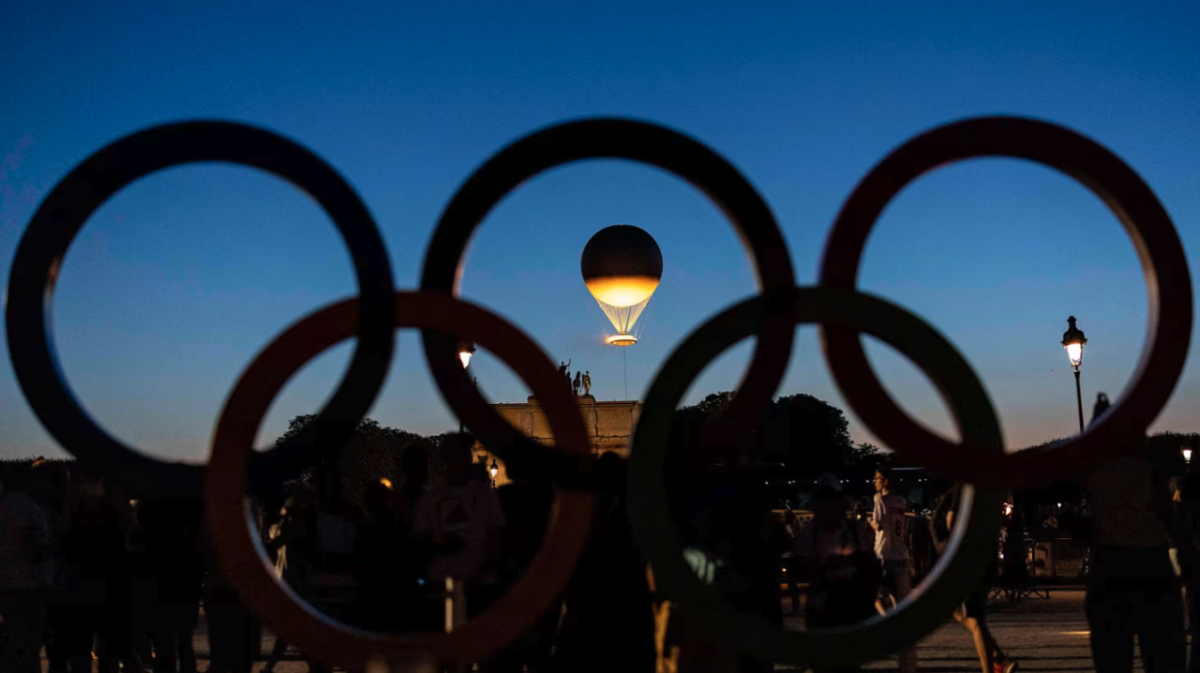
International Olympic Committee news
The Olympic Games Paris 2024 will go down in history for their stunning venues in the heart of Paris and across France, their focus on sustainability and legacy, and the record-breaking performances by athletes from the territories of 206 National Olympic Committees (NOCs) and the Refugee Olympic Team.
These Olympic Games were the first to be planned and delivered in line with the reforms of Olympic Agenda 2020. They were younger, more inclusive, more urban and more sustainable.
They were the very first Olympic Games with full gender parity, because the International Olympic Committee (IOC) allocated 50 per cent of the quota places to female athletes and 50 per cent to male athletes. Olympic and world records were broken, and athletes recorded historic firsts for their countries. Media Rights-Holders (MRHs) are reporting record figures compared to previous Games, with Paris 2024 anticipated to be the most followed Games ever, with over half of the world’s population expected to have engaged with them.
Ahead of the Closing Ceremony at the Stade de France, join us in looking back at the incredible facts and figures from the Olympic Games Paris 2024.
All data as of 11 August 2024.
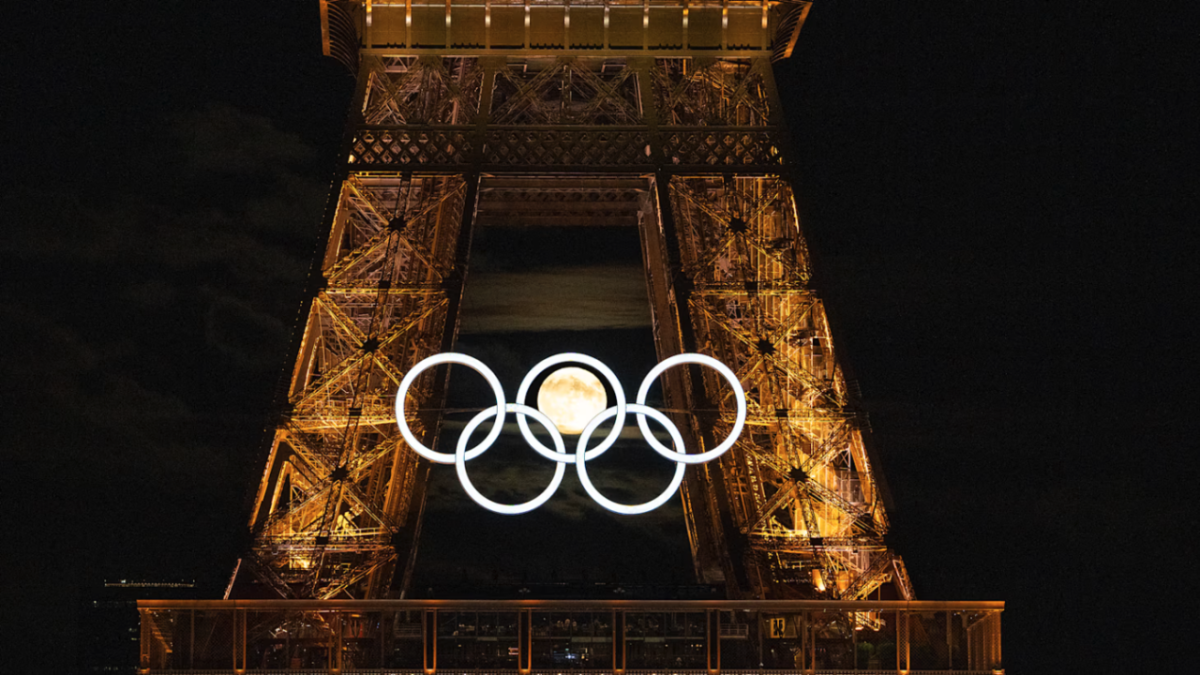
Sport
- 19 days of competition
- Athletes from the territories of 206 National Olympic Committees and the IOC Refugee Olympic Team represented
- 32 sports/48 disciplines
- 35 competition venues
- 4 additional sports proposed by the Paris 2024 Organising Committee: skateboarding, sport climbing, surfing and breaking
- 15 new events
- 1 sport made its Olympic debut – breaking
- 754 competition sessions
- 329 medal events
- 5,084 medals have been produced, using 18 grammes of iron from the Eiffel Tower
- 20 mixed-gender medal events
- 125 Olympic records broken in 10 disciplines
- 32 world records broken in 8 disciplines
- 91 NOCs and the IOC Refugee Olympic Team won medals
- 4 NOCs won their first Olympic Games gold medal:
- Botswana: Letsile Tebogo – athletics – men’s 200m
- Dominica: Thea LaFond – athletics – women’s triple jump
- Guatemala: Adriana Ruano Oliva – shooting – women’s trap
- Saint Lucia: Julien Alfred – athletics – women’s 100m
- First medal for the Refugee Olympic Team: Cindy Ngamba (bronze) – boxing - women’s 75kg
- First medal won:
- Albania: Chermen Valiev (bronze) – wrestling – men’s 74kg freestyle
- Cape Verde: David de Pina (bronze) – boxing – men’s 51kg
- Dominica: Thea LaFond (gold) – athletics – women’s triple jump
- Saint Lucia: Julien Alfred (gold) – athletics – women’s 100m
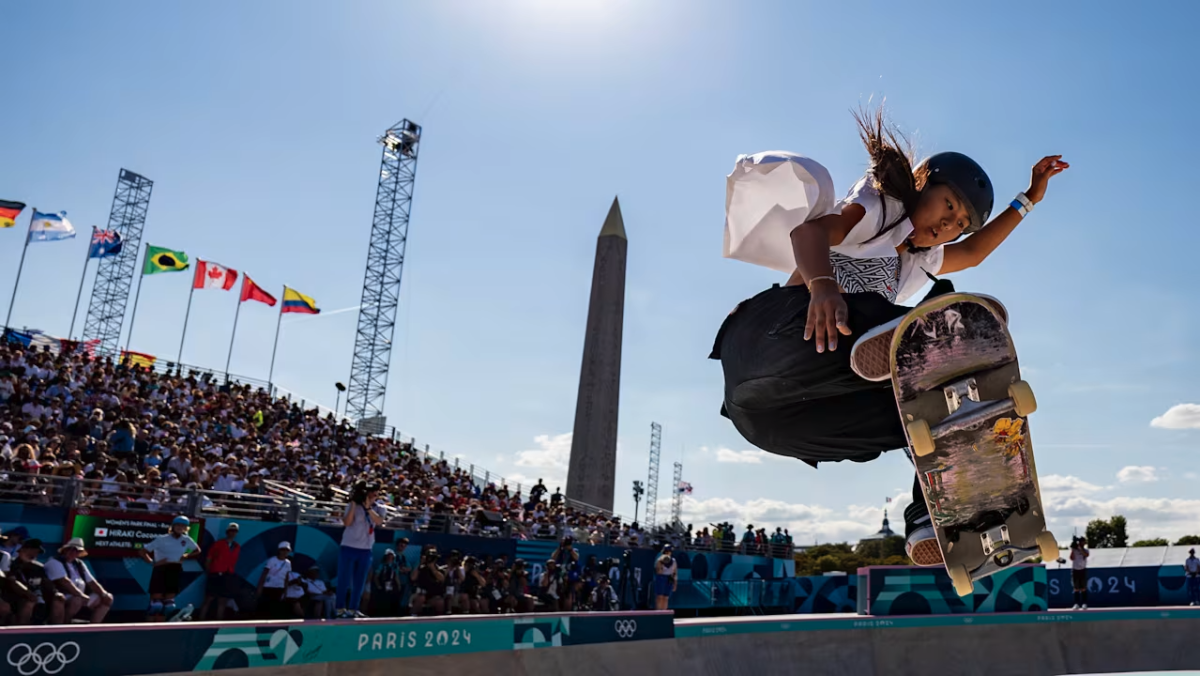
Fans
Throughout Paris and across France, fans have packed out the competition venues and hundreds of celebration sites.
- Over 9.5 out of 10 million tickets have been sold
- 145,000 spectators from all around the world gathered in 743 Carrés des Supporters zones located in venue stands during the Games, to cheer for the athletes and create a festive atmosphere – 2,250 of them gathered along the River Seine for the Opening Ceremony
- Nearly one million people came out into the streets to watch the two Olympic road cycling races on 3 and 4 August
- More than 6 million visitors to celebration sites across the country, including:
- 4.5 million fans across 171 Club 2024 sites that opened for the Games period, with the three biggest – Paris Hôtel de Ville, Parc Georges-Valbon and Marseille – welcoming 15,000 to 20,000 people per day
- Nations Park: 15 nations hosted their own “House” at La Villette, including Club France, with Park attendance at more than 90,000 people per day
- Champions Park: 280,000 people experienced the celebration space at the Eiffel Tower, cheering for 600 medallists from around the world
- Across all types of celebration sites, 95 per cent of visitors rated their experience as good or excellent, demonstrating the enthusiasm of the fans for the Games and free celebrations
Some examples of sports that set new attendance records at the Games:
- Basketball - nearly 1.08 million spectators
- Rugby 7s – over 530,000 spectators
- Handball – nearly 500,000 spectators
- Beach volleyball – nearly 450,000 spectators
- On 30 July alone, around 743,000 spectators attended Paris 2024 events
- More than 4,800 communities have been awarded the Terre de Jeux label, bringing the Games to those who are far from the stadiums
- There were more than 2,500 Cultural Olympiad projects, offering over 100,000 events
- Last night, more than 48,000 Olympic enthusiasts took part in the first-ever mass-participation event organised during the Olympic Games, the Marathon Pour Tous
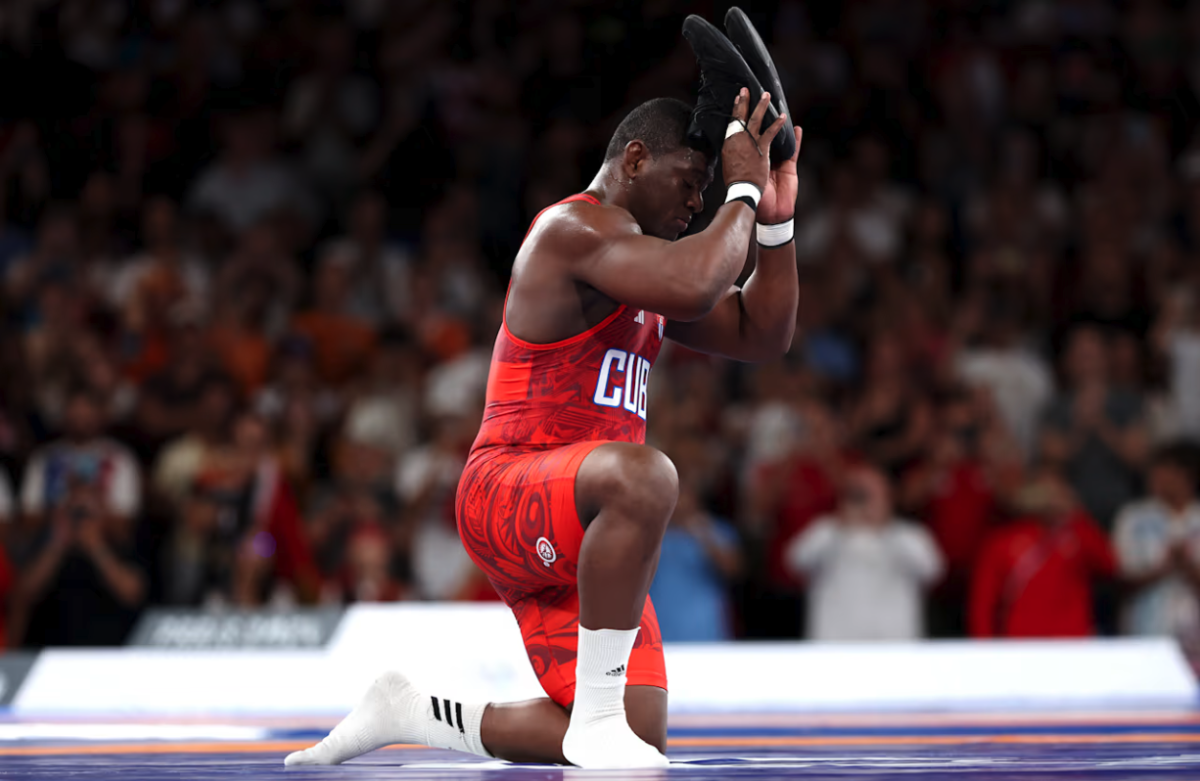
Gender equality
- 196 NOC delegations (96 per cent) selected one male and one female athlete as their flagbearers
- 28 out of 32 sports reached full gender equality
- A more gender-balanced number of medal events, with the competition schedule comprising 152 women’s events, 157 men’s events and 20 mixed-gender events
- Women accounted for 50 per cent of the 45,000 volunteers
- The staff and Board of the Paris 2024 Organising Committee were 50/50 gender balanced
- Gender parity was achieved among the 10,000 torchbearers/relay participants
- The 40,000 spots for the Marathon Pour Tous mass-participation event were also split equally between men and women
- Some examples of record attendances for women's sports:
- World record for women’s rugby: 66,000 at the Stade de France
- European record for women’s basketball: 27,000 in Lille
- Record attendance for women’s handball: 26,500
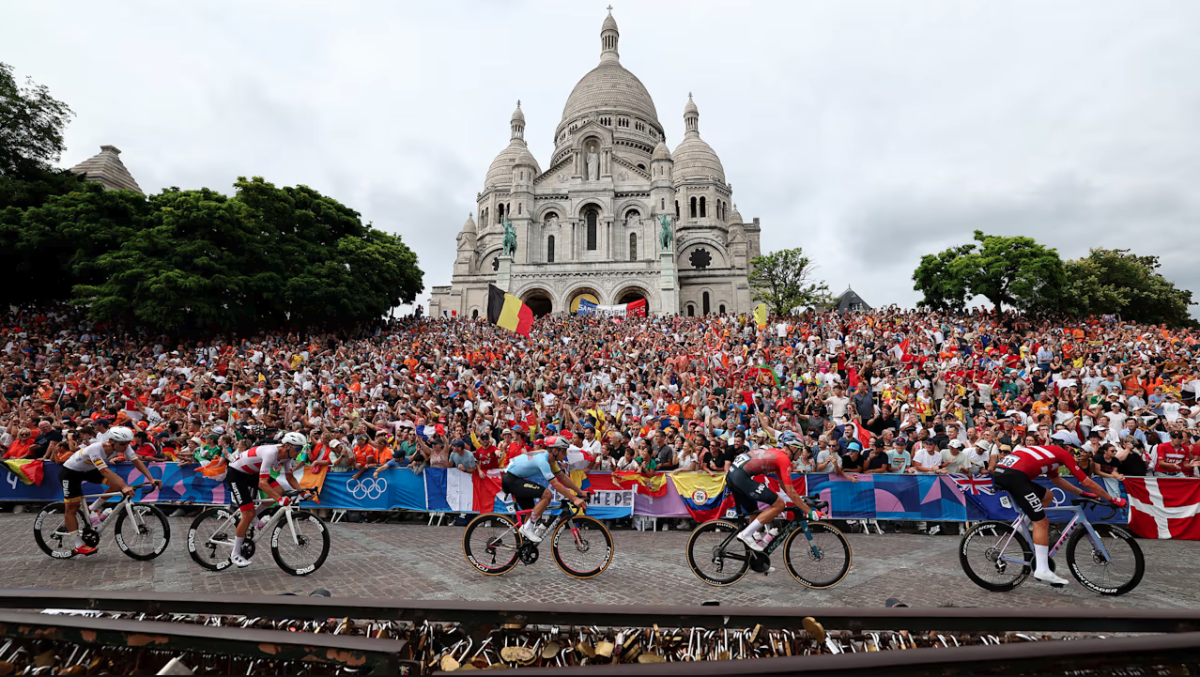
Olympic Solidarity
(data correct as of end of competition on 10 August 2024)
The Olympic Solidarity programme helped thousands of athletes qualify for and compete at the Games by providing crucial funding to cover training, equipment and other essential costs, leading to outstanding results.
- 599 Olympic Solidarity individual scholarship-holders competed (303 men and 296 women)
- 75 medals won by scholarship-holders: 26 gold, 20 silver and 29 bronze, plus 132 diplomas
- 195 NOCs received Olympic Solidarity athlete scholarship funding for Paris (159 through individual scholarships and 36 through tailor-made assistance)
- 1 medal and 3 diplomas won by Refugee Athlete Support Grant beneficiaries
- 5 medals won by teams who received Olympic Solidarity Team Support grants: 3 gold, 1 silver and 1 bronze, plus 12 diplomas
- 139 Paris 2024 scholarship-holders (64 women and 75 men) were selected as the flagbearers for their NOC at the Opening Ceremony
- 88 Paris 2024 scholarship-holders (45 women and 43 men) were selected as the flagbearers for their NOC at the Closing Ceremony (figure based on provisional list)
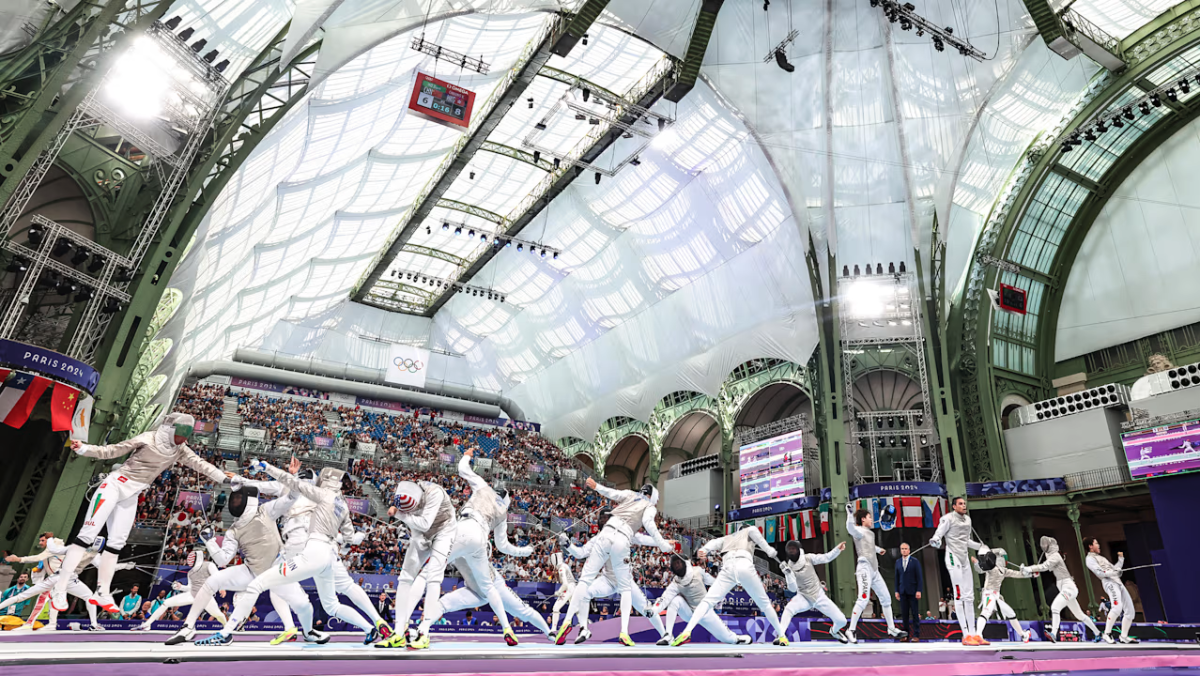
Media and broadcast
Paris 2024 reached billions of people around the world thanks to new media rights agreements and the work of the Olympic Broadcasting Services (OBS) team.
- 36 Media Rights-Holders (including the Olympic Channel)
- 182 broadcast sublicensees
- Over half of the world’s population is expected to have engaged via broadcast or digital channels with the Olympic Games Paris 2024
- 11,000+ hours produced by OBS
- 8,300+ broadcast personnel
- 1,000+ OBS cameras
- 3,680 microphones
- OBS's online content delivery platform (Content+) has become the primary method of delivering short-form and social media content to the MRHs – more than 17,000 pieces are available (of which approximately 790 pieces are vertical content designed specifically for social media)
- This has resulted in a total of more than 113,000 downloads over the course of the Games
- Over 440 Athlete Moments completed, more than double that of Tokyo 2020
- 70+ countries connecting to athletes via the Athlete Moment
- AI used to support MRHs with automatic highlights generation – over 95,000 highlights created
- 5,733 accredited media (4,155 press + 1,578 photographers)
- 903 domestic / 4,830 international press and photographers
- 2,113 news organisations
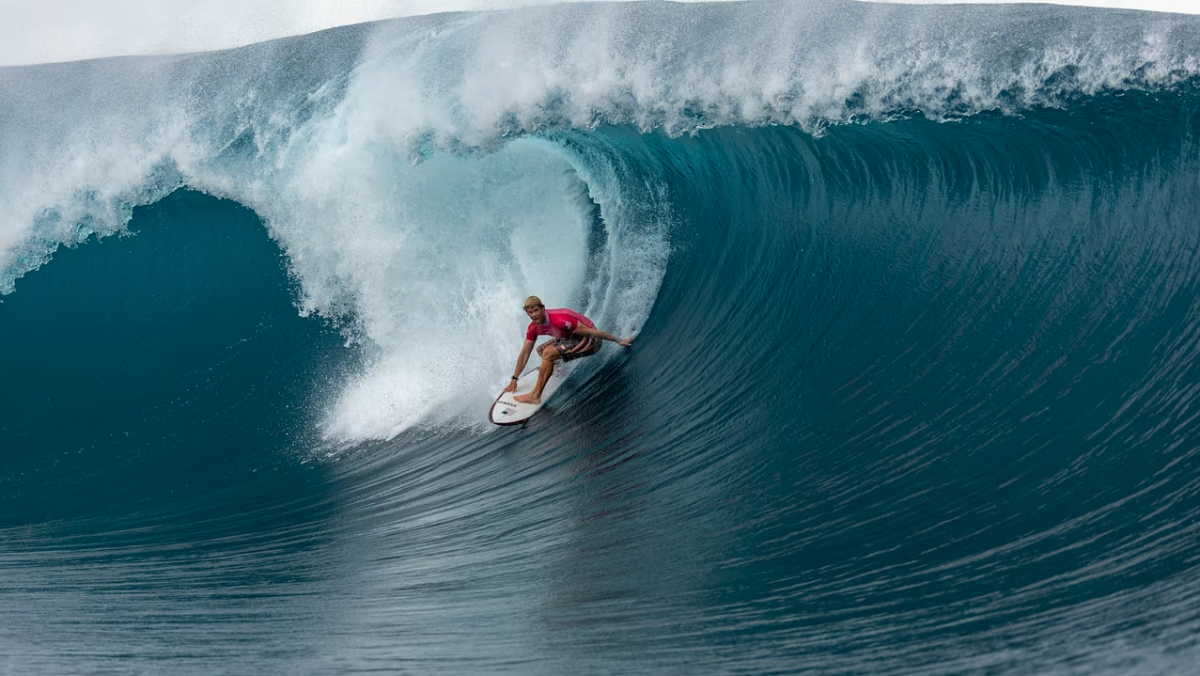
Digital
More Olympics fans than ever before used the IOC’s various digital and social platforms to follow the Games:
- Unprecedented results on Olympics social media handles, with over 12 billion engagements, more than double that of Tokyo 2020
- Over 32 million new followers joined Olympics social media during Paris 2024, more than tripling the growth seen during Tokyo 2020
- Record usage of the Olympic web and app, reaching approximately 300 million people during Paris 2024, the highest for any Olympic Games edition
- No. 1 sports app in over 70 territories and the no. 1 app overall in key markets, including the USA, France and Italy
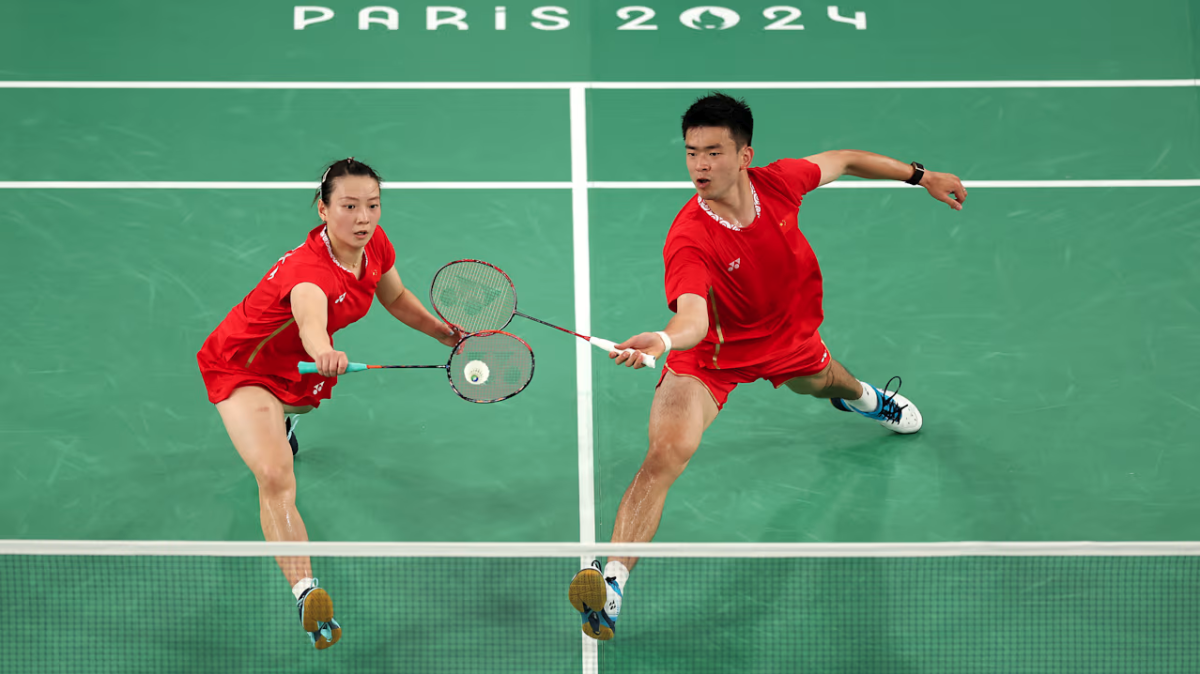
Legacy and impact
Paris 2024 has set new benchmarks for the positive impact and legacy the Games can create for the local communities before, during and long after the event.
- Paris 2024 has brought more sport to more people across France
- 30 minutes of daily physical activity at primary schools adopted as a national policy and introduced in all 36,800 French primary schools
- 26,000 children across France received free swimming lessons as part of the 1,2,3 Nagez! programme – including 9,400 from Seine-Saint-Denis
- 5 million young people engaged across eight editions of the Olympic and Paralympic Week
- 5,000 community sports facilities across French neighbourhoods have brought more opportunities to practise sport closer to people’s homes
- 4.5 million people directly benefitting from 1,100 grassroots projects that use sport to improve people’s lives
- Aquatics Centre – strategically located in Seine-Saint-Denis, which lacks sports facilities and where one in every two 11-year-olds cannot swim
- The Olympic Village, also in Seine-Saint-Denis, will become a new residential district with 2,800 apartments, including 25 per cent social housing
- Between EUR 6.9 and 11.1 billion in economic activity expected to be generated by the Games within the Paris metropolitan area
- 181,100 people found employment in Games-related jobs
- 30,000 people have been trained in new skills for future careers, enhancing their employability and career prospects
- 90 per cent of Games suppliers from France, 78 per cent are small- and middle-sized suppliers
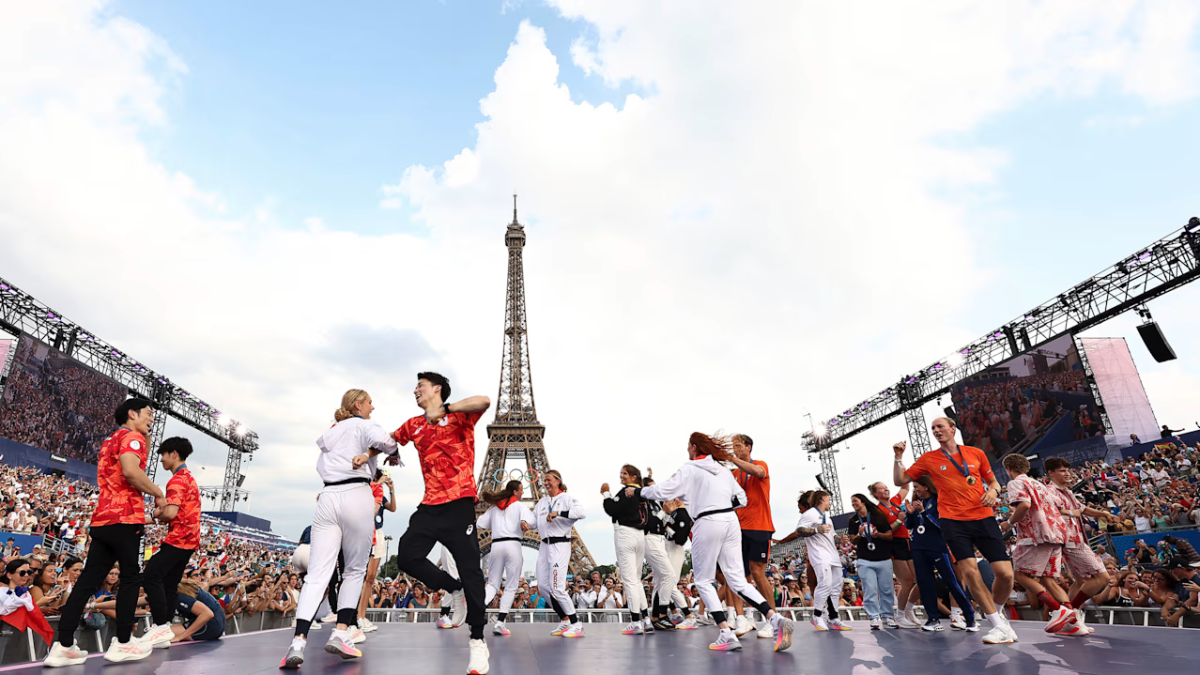
Sustainability
Paris 2024 has set new sustainability standards for global sporting events by doing more with less to reduce the environmental impact of the Games while maximising social and economic benefits.
- Paris 2024 aimed to cut carbon emissions by half compared to the average of London 2012 and Rio 2016
- 95 per cent of venues were existing or temporary
- All venues accessible by public transport
- Second life secured for 90 per cent of equipment and goods
- The Olympic Village – a new residential and business eco-district constructed with 30 per cent less carbon compared to a regular French construction
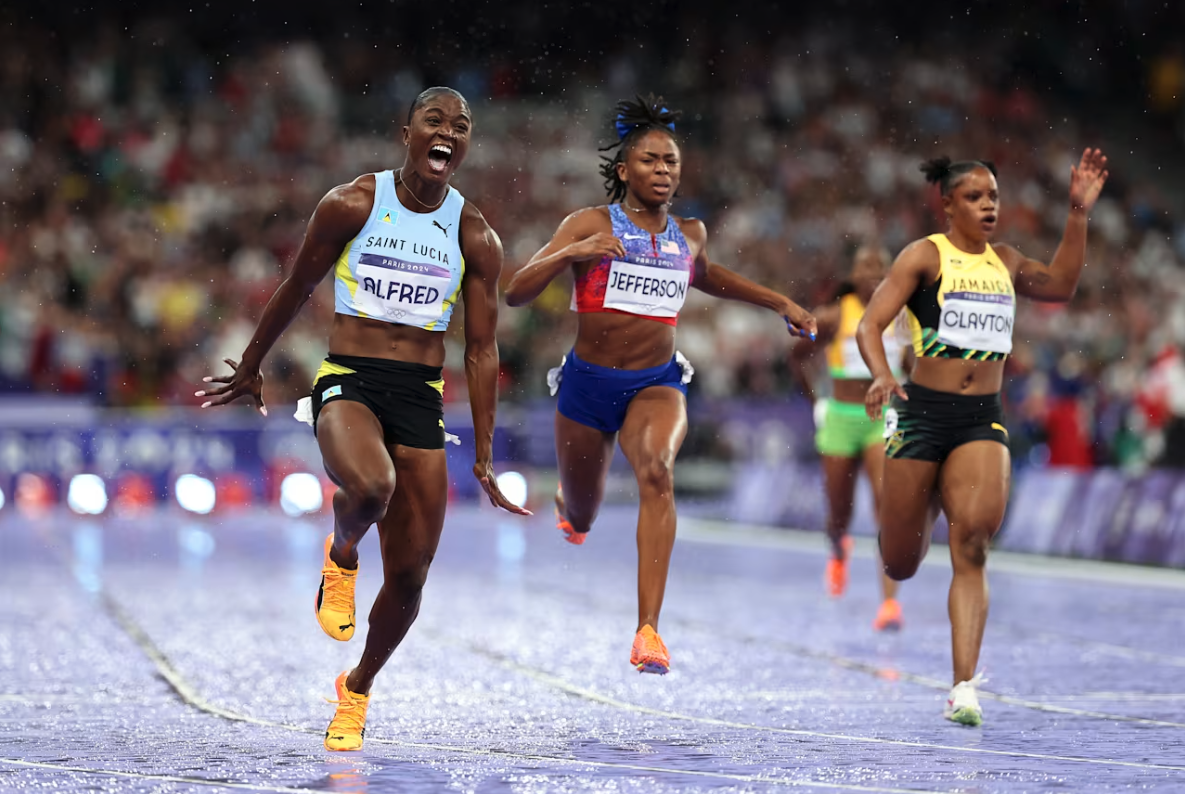
Olympic Village
- Around 14,000 athletes and entourage members stayed at the Olympic Villages in Paris, Lille, Châteauroux, Marseille and Tahiti
- The Paris Olympic Village will become a new residential and business eco-district with 2,800 apartments for 6,000 people, 25 per cent of which will be social housing
Olympic Torch Relay
- The relay lasted for 68 days, travelling across French cities, towns and territories
- The torch passed through over 450 towns and cities
- It covered 65 regions, including five overseas territories: Guadeloupe, French Guiana, Martinique, French Polynesia and Réunion Island
- Approximately 11,000 torchbearers participated
- Around 8 million spectators came to see the Olympic Torch Relay
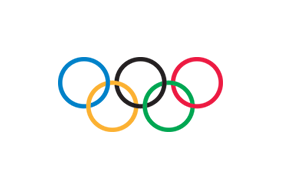
International Olympic Committee
International Olympic Committee
The International Olympic Committee (IOC) is a not-for-profit independent international organisation that is committed to building a better world through sport. It redistributes more than 90 per cent of its income to the wider sporting movement, which means that every day the equivalent of USD 3.4 million goes to help athletes and sports organisations at all levels around the world.
As the leader of the Olympic Movement, the IOC acts as a catalyst for collaboration between all parties of the Olympic family, from the National Olympic Committees (NOCs), the International Sports Federations (IFs), the athletes and the Organising Committees for the Olympic Games (OCOGs) to the Worldwide Olympic Partners, broadcast partners and United Nations (UN) agencies, and shepherds success through a wide range of programmes and projects. On this basis, it ensures the regular celebration of the Olympic Games, supports all affiliated member organisations of the Olympic Movement and strongly encourages, by appropriate means, the promotion of the Olympic values.
More from International Olympic Committee

